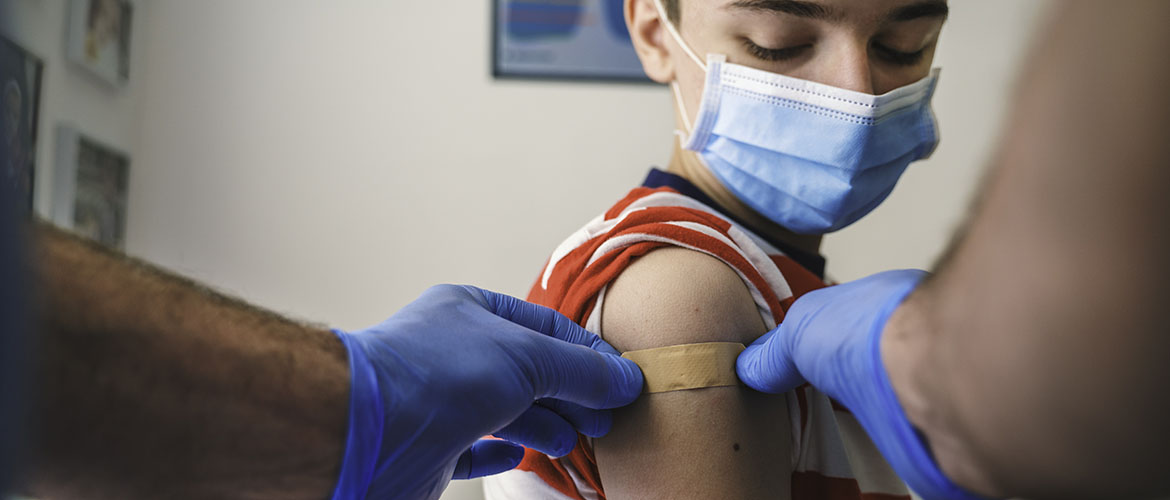Health officials warn a lag in childhood vaccinations during the COVID-19 pandemic could lead to outbreaks of other preventable diseases after school starts in the fall.
Routine vaccinations dropped dramatically early in the pandemic, and although they started picking up last summer, many children and teens still need their shots, the Centers for Disease Control and Prevention found in a recent report. Delays may result in outbreaks of illnesses, including measles, mumps and whooping cough.
“We’ve been able to largely ameliorate many diseases because of vaccinations,” says Dr. David Lechner, who leads immunization efforts for Blue Cross and Blue Shield of Oklahoma (BCBSOK). Because of successful immunization efforts, he says, much of the nation and many new doctors have never experienced the devastation diseases such as diphtheria, polio and measles can cause or recognize them when they reemerge.
“We lose that perspective,” says Lechner, an obstetrician and family doctor. “We’ve been lulled into a sense of security that it is okay to not immunize, which is simply not true.”
To improve vaccination rates, BCBSOK is collaborating with public health agencies and school districts to bridge immunization gaps. The Oklahoma Caring Foundation, supported by BCBSOK, and its Caring Van program are scheduling back-to-school immunization events for later this summer.
“This initiative furthers our mission of providing Oklahomans access to preventive health services,” says Caring Foundation manager Amy Pulliam. “Our four metro vans, two in Tulsa and two in Oklahoma City, have had a 22-year focus on providing regular vaccines to children year-round and providing influenza vaccines to children and adults during flu season.”
“We’ve been lulled into a sense of security that it is okay to not immunize, which is simply not true.”
The vans bring health care service to people when and where they need them, Pulliam says.
“By providing our unique mobile clinic model to the Tulsa community, we are removing the barriers of cost, transportation and restrictive medical clinic hours and keeping Oklahomans healthy,” she says.
Debbie Ferguson, lead nurse for Tulsa’s Union Public Schools, says many of the families in her 16,000-student district probably would have trouble getting their children immunized if not for the Caring Van program.
“Many of our families depend on getting their children vaccinated at school,” she says, adding that some low-income families can’t afford to go to doctors for immunizations. “We have to be able to help them. As a school nurse, I may be the only health care provider some children see.”
Ferguson says the district’s partnership with the Caring Van is essential in filling health care gaps and preventing disease outbreaks.
“We’ve made some great friends with this partnership,” she says. “It has helped guide us in the right direction.”
The CDC said in its report that preventing new outbreaks of vaccine-preventable diseases “requires a consolidated and coordinated effort among multiple partners to promote catching up and staying up to date on routine vaccinations for children of all ages.”
Ferguson agrees.
“I saw children with measles in hospitals as a nursing student,” she says. “We’ve gotten so good at immunizations that we don’t see a lot of these diseases anymore. The more we can intervene and be available to help, the better it will be for some of these kids.”

